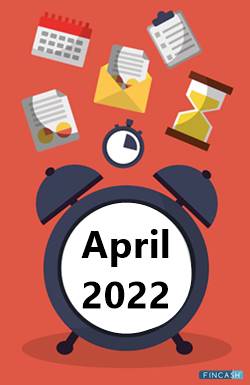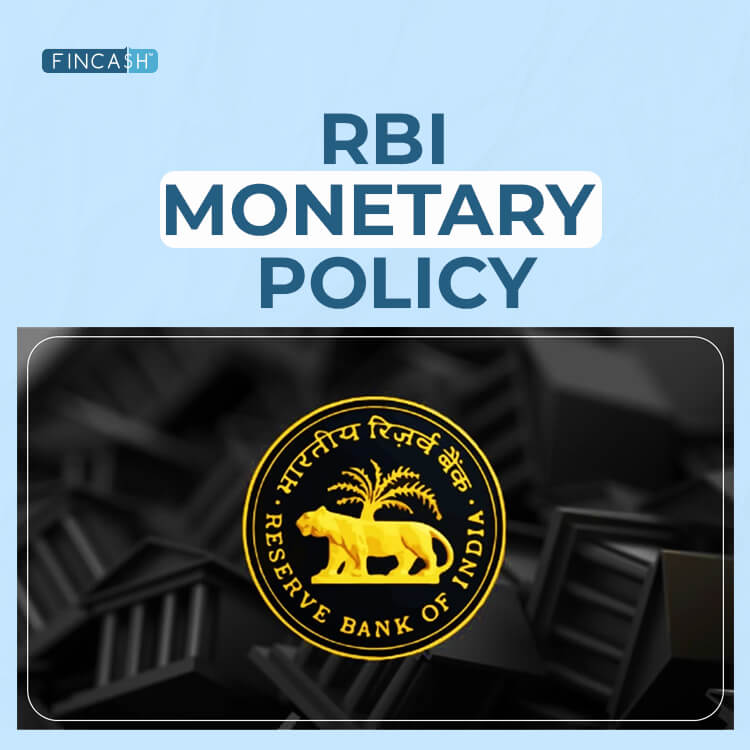
Fincash » Updates on Financial Rules from April 1, FY 2024-25
Table of Contents
Updates on Financial Rules from April 1, FY 2024-25
With April 1, India has entered a new Financial Year (FY 2024-25). This is when every updated regulation for the income tax regime, as highlighted in the Union Budget, starts being applied. In February 2023, Finance Minister Nirmala Sitharaman announced the interim budget effective from FY25.

In the budget announced, there were several amendments and updates to rules associated with Mutual Funds (MFs), insurance, Employees' Provident Fund Organisation (EPFO), National Pension System (NPS), etc. In this post, let's understand all the updates and how they change your Accounting scenario.
Updates on Life Insurance Policies
The Union Budget 2023 mentioned that the amount taken from Life Insurance policies will be taxed under the new tax regime if the annual premium paid is more than ₹5 lakhs. At the same time, the digitising of insurance policies became mandatory on April 1, 2024, by the Insurance Regulatory and Development Authority of India (IRDAI). This mandate is applied to all the categories of insurance, including general, health, and life insurance, requiring the need to issue policies electronically.
Updates on Small Saving Schemes
The interest rates for various Small Saving Schemes will remain unchanged for the quarter starting from April 1, 2024.
| Schemes | Interest Rate |
|---|---|
| Sukanya Samriddhi Scheme | 8.2% |
| Three-year Term Deposit | 7.1% |
| Public Provident Fund (PPF) | 7.1% |
| Post Office Savings Deposits | 4% |
| Kisan Vikas Patra | 7.5% |
| National Savings Certificate (NSC) | 7.7% |
| Monthly Income Scheme (MIS) | 7.4% |
Under the Sukanya Samriddhi scheme, deposits will continue to earn an interest rate of 8.2%, while the rate for a three-year term deposit remains steady at 7.1%. Similarly, the interest rates for popular schemes such as the Public Provident Fund (PPF) and post office savings deposits remain unchanged at 7.1% and 4%, respectively.
The interest rate on Kisan Vikas Patra remains at 7.5%, with investments maturing in 115 months. For the April-June 2024 period, the National Savings Certificate (NSC) interest rate will remain at 7.7%. Likewise, the Monthly Income Scheme (MIS) will continue to yield 7.4% returns for investors, similar to the current quarter.
Talk to our investment specialist
Updates on National Pension System (NPS)
The Pension Fund Regulatory and Development Authority (PFRDA) has implemented a security enhancement measure by introducing a two-Factor authentication system, set to be implemented on April 1. Under this system, a two-factor Aadhaar-based authentication will be compulsory for all password-based logins into the Central Recordkeeping Agency (CRA) system. This initiative aims to bolster security measures and protect subscribers' and stakeholders' interests within the NPS framework.
How to Use Two-Factor Aadhaar Authentication?
To utilise the two-factor Aadhaar authentication for logging into the NPS, follow these steps:
- Step 1: Visit the NPS website.
- Step 2: Navigate to the 'Login with PRAIN/IPIN' section and click on the PRAIN/IPIN tab.
- Step 3: A new window will appear, prompting you to enter your user ID and password.
- Step 4: After entering your credentials, complete the Captcha and proceed.
- Step 5: The window will then prompt you for Aadhaar authentication.
- Step 6: A One-Time Password (OTP) will be sent to your registered mobile number.
- Step 7: Enter the OTP received on your mobile device.
- Step 8: Upon successful authentication, you will gain access to your NPS Account.
Updates on Employees' Provident Fund Organisation (EPFO)
The EPFO has initiated a seamless process whereby subscribers' balances will be automatically transferred to their new organisation when they switch jobs. This means that EPFO account holders will no longer need to submit a request to transfer their PF amount when changing jobs.
Revised Retail Prices of 65 Formulations
As per the Department of Pharmaceuticals, the revised ceiling rates will be effective from April 1. The updated rate list encompasses essential drugs such as painkillers, antivirals, antibiotics, antimalarials, and medications for type-2 diabetes. The adjustment in the ceiling and retail prices follows the National Pharmaceutical Pricing Authority's (NPPA) announcement of a 0.00551% increase in drug prices listed in the National List of Essential Drugs (NLEM), reflecting changes in the wholesale price index (WPI).
As a result of these revisions, manufacturers are now permitted to adjust the maximum retail price (MRP) of scheduled formulations based on the WPI fluctuations, eliminating the need for prior approval from the government.
Updates on FASTag
Completing the Know Your Customer (KYC) process for your car's FASTag with the Bank before March 31 is crucial to avoid bank deactivation. Failure to undergo the KYC process may result in incomplete payments. The National Highways Authority of India (NHAI) has urged FASTag users to adhere to Reserve Bank of India (RBI) regulations for seamless toll tax transactions at toll plazas. Effective April 1, the 'One Vehicle, One FASTag' initiative has been implemented to discourage using a single FASTag for multiple vehicles or linking multiple FASTags to a single vehicle.
Updates on Mutual Funds
Starting from April 1, investors will be unable to conduct mutual fund transactions, including Systematic investment plan (SIPs), Systematic Withdrawal Plans (SWPs), and redemptions, without completing the Know Your Customer (KYC) process. KYCs based on proofs such as bank statements and utility bills will no longer be considered valid after March 31. Instead, officially valid documents such as Aadhaar ID, passport, and Voter ID, among others, will be required for KYC verification.
Updates on Credit and Debit Cards
Several Indian banks have unveiled significant changes to their credit and Debit Card policies, set to take effect from April 2024. These changes encompass various aspects of card usage and services, aiming to enhance security, streamline processes, and improve customer experience.
Specific details regarding the modifications introduced by each bank may include:
- Alterations to reward programs
- Adjustments in interest rates or fees
- Updates to card benefits and privileges
- Implementation of new security measures, such as additional authentication protocols
- Enhancements to digital banking features
Customers are encouraged to review the announcements from their respective banks to understand the implications of these changes and to ensure compliance with the updated policies.
SBI Credit and Debit Card
Starting April 1, 2024, the State Bank of India Card will change its reward points policy, explicitly affecting the accumulation of points on rental payments. This adjustment will impact various credit cards offered by SBI, including the AURUM, SBI Card Elite, and SimplyCLICK SBI Card, among others. Additionally, effective April 1, 2024, the SBI will increase the annual maintenance charges by ₹75 for certain debit cards, as outlined on their official website.
Conclusion
Several significant changes have occurred as of April 1, FY25. These adjustments mark a crucial milestone in the financial landscape, impacting individuals and institutions alike. With the implementation of new rules, individuals will need to reassess their financial planning strategies. The revamped rules for NPS also introduce enhanced security measures, protecting subscribers' interests. As individuals navigate these changes. Staying informed and proactive will be key in adapting to the evolving financial landscape and making informed decisions for a secure financial future.
All efforts have been made to ensure the information provided here is accurate. However, no guarantees are made regarding correctness of data. Please verify with scheme information document before making any investment.
You Might Also Like











